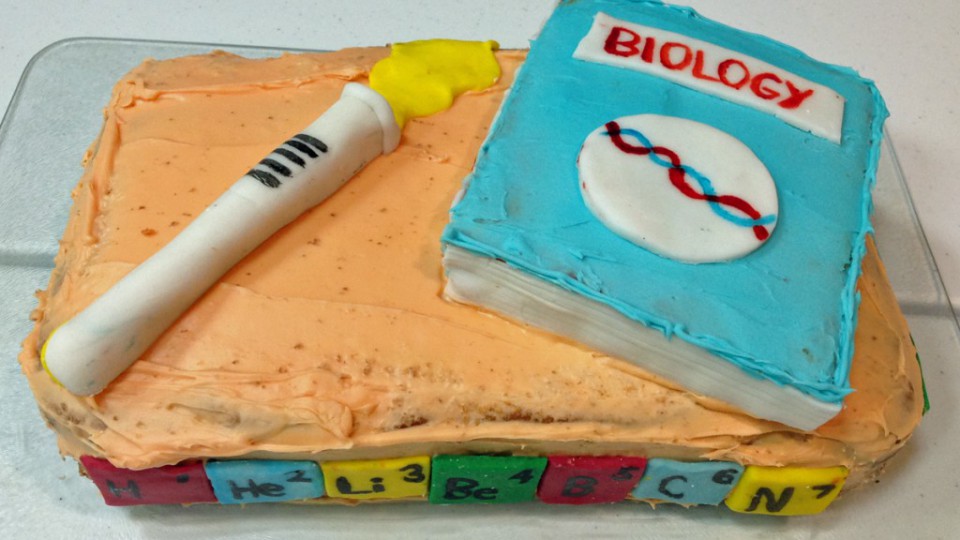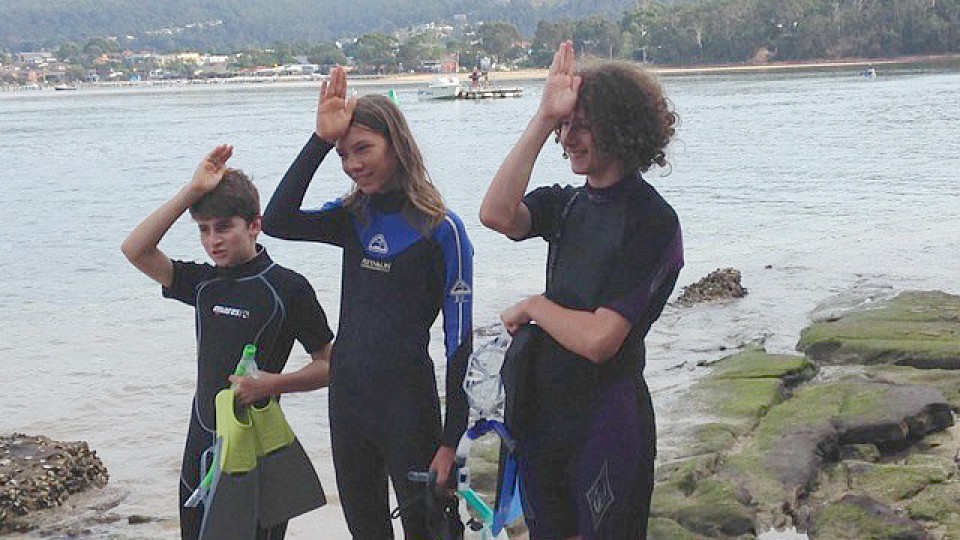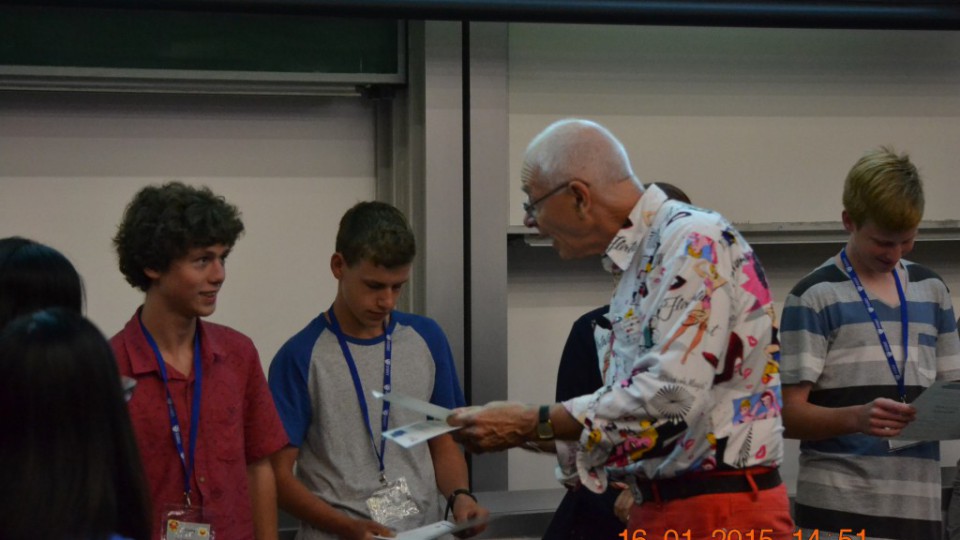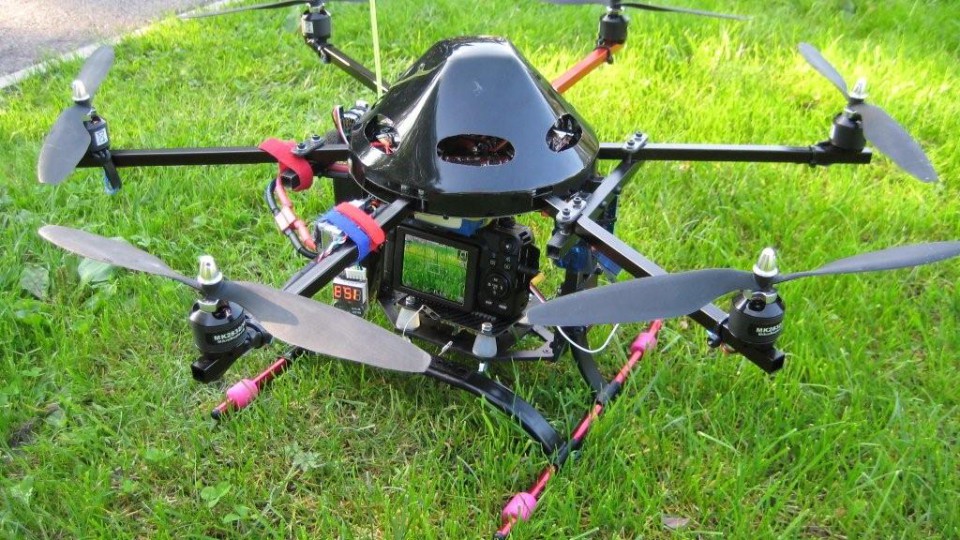Yesterday, Jade Moxey won the 2017 national BHP Billiton Science & Engineering Awards with her project Grazing sheep on Deadly fireweed: A “BaaaaD” situation?
This adds to Jades’ awards for this project, having already been one of the winners in the 2016 NSW Young Scientist competition, which includes a U.S. trip to the Intel International Science & Engineering Fair (for the second year in a row).
Category:
08
Feb2017
29
Mar2016
Pics from the Kids Get Together Evening, which was a show & tell of students projects, plus a food frenzy.
Photographs: Lis Shelley
15
Mar2016
Snorkeling morning at Merimbula, hosted by Sapphire Coast Marine Discovery Centre
Photographs: Fiona Gross
08
Mar2016
Jade Moxey, from Sapphire Coast Anglican College, has taken out second prize in the 2016 BHP Billiton Science & Engineering Awards with her project ‘The spread of seeds through cattle’.
Using livestock as an economic and environmentally friendly control in the fight against weeds is becoming a more common approach within farming communities. However, observing clear contradictions to this approach on her family farm led Jade to question whether this was compounding the problem instead of solving it. Jade investigated what plants, if any, are capable of germinating after passing through the digestive tract of a bovine animal. Jade collected manure samples from the Bega Saleyards, NSW and from these grew a total of 1557 plants from 19 individual species.
Her research has already sparked interest among the scientific community and she has fielded numerous calls from researchers requesting the results of her project.
View Jade’s video interview
06
Nov2015
Last Wednesday 4th November, Jade Moxey won the major NSW science award as ‘Young Scientist of the Year’ for her research into the spread of invasive weeds in rural areas. Jade is a Year 10 student at the Sapphire Coast Anglican College.
As well as her prize money of $1500 Jade will also be going to Phoenix (Arizona) next May to represent Australia in the Intel ‘International Science and Engineering Fair’.
It is the first year that any local student has entered this competition, which makes her win doubly awesome. (It is also the first time since 2007 that a female has won the ‘Young Scientist of the Year’ award).
You can also listen to an ABC radio interview with Jade here
27
Oct2015
The nominations for Star Achievers Scholarships for 2016/17 are now being processed. The successful students will be notified in mid November.
15
Feb2015
From Tim:
We had a good time at the CSI science experience. Dr Karl gave a presentation at the end which the parents attended. He showed lots of photos of his trip to America and combined it with some science facts.
We built a tower from straws to hold up a cup of water.
We tested blood types ( they didn't use their own they had samples provided).
We tested for cauliflower DNA.
We tested soils and pollens.
We identified some bones.
We burnt lots of stuff (with acid) and played with liquid nitrogen.
From Tim:
We had a good time at the CSI science experience. Dr Karl gave a presentation at the end which the parents attended. He showed lots of photos of his trip to America and combined it with some science facts.
We built a tower
from straws to hold up a cup of water.
We tested blood types ( they didn’t use their own they had samples provided).
We tested for cauliflower DNA.
We tested soils and pollens.
We identified some bones.
We burnt lots of stuff (with acid) and played with liquid nitrogen.
06
Aug2014
If you haven't caught these yet, they are podcasts which see Dr Karl and Adam Spencer mix science with humour as they set out to answer some of the perplexing scientific mysteries we encounter on a daily basis. Download and enjoy this highly entertaining science-fuelled knowledge whirlwind and, as the Sleek Geeks like to say, "Learn something without even noticing"...
https://itunes.apple.com/au/podcast/sleek-geeks/id893405381?mt=2
It seems they are producing a new one each week.
14
Apr2014
It's early days yet, but there is interest in starting a club for all local (Sapphire Coast) kids who are into technology. Not the boring bits, but the fun stuff.
Robotics
Drones (or more correctly 'unmanned aerial vehicles')
Games programming
Electronics
Rockets
It will be for anyone from 11 to 17 years old and would get together, say, once a month after school or at the weekend.
For robotics, we may even have a hands-on 2 day holiday camp with construction and competitions (by age group).
What do you think? Would you be in this? Please post a comment.
13
Apr2014
Formula 1 racing has never been known for its green credentials – after all it’s all about making a lot of noise, going really, really fast and burning a lot of fossil fuel.
But that seems to be changing in 2014. The new engines must be at least 30% more efficient than before, are limited to 1.6 litre capacity (the same as a small car), and use a strictly limited amount of fuel per race. And to keep the spectators happy, the cars will still have to be just as fast, or faster.
So, how will this magic feat be achieved? It’s all about technology.
There is nothing new about turbochargers – many modern cars have them. They are a turbine that boosts the pressure of the air going into the engine cylinders, in essence forcing a higher amount of air/fuel mixture which gives a bigger bang and more power.
But at higher engine revs most of the hot exhaust gas bypasses the turbocharger and goes straight down the exhaust pipe. Hot, high velocity gas equals energy, and it’s this energy that has been wasted until now.
What the F1 engines are doing now is harvesting this wasted gas to power a generator. The electricity produced can then be used by an electric motor which can add up to an extra 120 kilowatts of power to the car for short periods.
The combination of regenerative braking and the new turbo-powered generator/motor means that the F1 engine can use a lot less fuel. If you are thinking ... Read More






